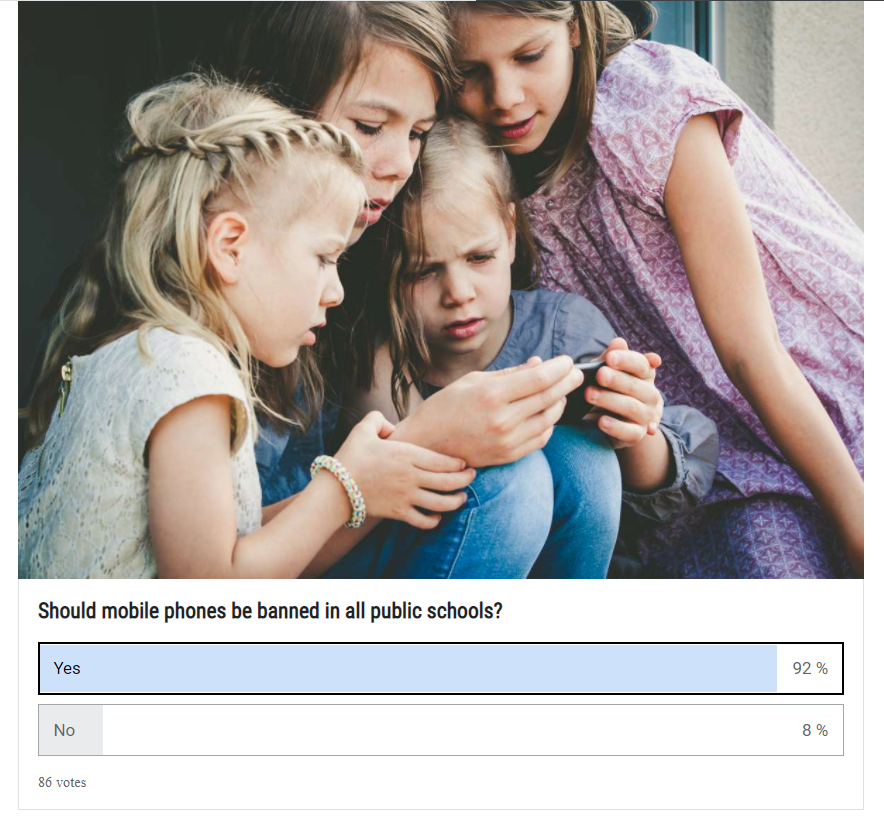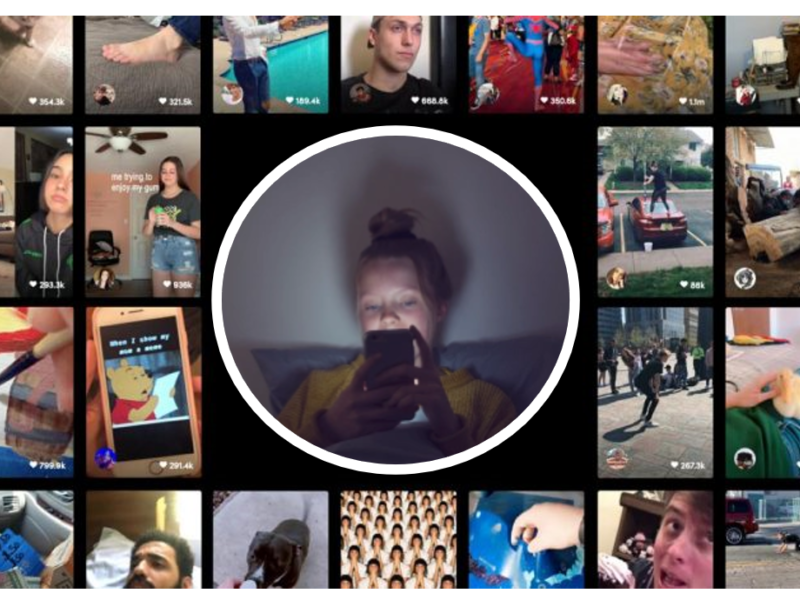Why are classroom teachers so rarely asked about the impacts of technology and social media on young people?
We are in a unique position to see the impacts play out, in real-time, every day.
So many experienced educators have told me the changes they have seen in young people’s attention, resilience and mental health in the past decade are truly shocking.
Over the past seven years, I have watched first Snap and Insta and now TikTok sweep through my classes. Still in the Northern Territory, Government policy dictates phones are allowed in middle and high school classrooms.
This policy is based on the flimsiest anecdotal evidence, evidence refuted by several major states and peer-reviewed research.
As educators we need to keep highlighting the links between deteriorating youth mental health and the over-use of addictive, attention-harvesting apps.
TikTok and Instagram are fun in small doses (I have both), but they are expertly designed to be habit-forming and attention draining. Young people can’t be expected to regulate themselves on these apps, especially during the school day.
Last year I attended the Yale Law School webinar, ‘The Facebook Files: What Next?’ and was lucky enough to put a question to the panel on this very issue.
My question was: “I’m a middle school teacher. I see the war for young people’s attention and the unfolding youth mental health crisis play out in my classroom every day. What role does the panel envisage for teachers in empowering young people to reshape their relationship with social media and addictive technology?”
I found the conversation which followed between Facebook whistle-blower, Frances Haugen, co-founder of the Center for Humane Technology, Tristan Harris and Harvard Professor and author Shoshana Zuboff enlightening.
I’ve written about how time poor classroom teachers are, so if you don’t have time to watch, I have collected some key takeaways from the discussion:
“Facebook knows that parents give bad advice like ‘why don’t you just turn off your phone’?’ or ‘why don’t you just not use it?’ But the reality is that kids fear being ostracized. That’s in Facebook’s docs. Kids say [about Instagram] I know it doesn’t make me happy, I know I’m not having fun. I know I don’t want to use it, but I also feel like I can’t stop.” (Frances Haugen)
“Part of the business model of engagement is creating these virtual social ties and these virtual social pressures and… feelings that ‘other people are watching me’, because that’s what creates the need that I have to go back in there and manage my virtual self.” (Tristan Harris)
“Right now, parents are trying really hard and because there are those gaps and those differences of lived experiences, parents just aren’t being set up to succeed and the parents are struggling with this just as much as the kids are.” (Frances Haugen)
“Teachers are really embattled, and it takes perhaps not just a single teacher but a school and maybe a school system, to say we’re going to re-institute the human and the relationship and the relational.” (Shoshana Zuboff)
I’m particularly inspired by Shoshana’s call for schools and school systems to “re-institute the human”. The first step is taking smart phones out of classrooms – unless they are required for a specific instructional purpose.
Reflecting on the discussion, I really empathize with parents’ trying to navigate their kids relationship with smart phones after school hours.
Parents understandably don’t want to ostracize their kids by not allowing them access to phones or social media. But once access is granted, parents face the full-time role of managing and policing kids’ social media use. Parents are literally caught between a rock and a hard place.
Schools are not.
As I’ve written before, smart phones (very) rarely play a constructive role in the classroom. Based on the survey results when that article was published, the overwealming majority of teachers and parents agree.

Educators, if you have any smart phone in the classroom stories (both positive and negative) feel free to kick off the chat and share. These are my opinions, but I’d love to start a conversation and hear from you!
If you’re an English teacher, I’ve also linked to some argumentative writing resources I use to help reshape my students’ relationship with addictive technology.
For English, Media or Humanities (Economics) teachers, I also have a series of lessons on the attention economy and resources for the award-winning documentary ‘The Social Dilemma’ which might be of use.
Happy teaching 🙂



I ban them completely in my classroom. The school systems let us down by neglecting to have strong policies, but we are not powerless. Students have to put their phones and headphones in their bags and their bags on the floor. This way, the kids can’t see or feel notifications or play with their phone in their lap. If they take them out, I tell them to either put their phone in their bag or in my hand and if I take it, I return it at the end of the lesson. It stays in my pocket throughout the rest of the lesson to keep it safe. It takes time to train these expectations in, and many other teachers deride me for my choice. My response to students and teachers is the same: when I read a psychology study that shows using phones and headphones has a positive effect on learning, then I will allow them in my classroom. Until then, I have a zero tolerance policy for them which I implement from day one. I lose battles but I win the war. Most kids are happy to give their phone to you to keep safe once you have shown you’ll definitely give it back at the end of a lesson. Some kids hand it to me on the way in because they genuinely want my help to stay off their phone. This makes me so sad for them. I’m a parent of a baby now, and there’s no way my child will have a smart phone to take to school. Again, people deride me for this statement, but that’s the way it will be in our family at school. I don’t think it will be easy. I think it will be a source of conflict but I do not think my job as parent or teacher is to neglect children’s needs just to avoid conflict.
To make it easier to implement, parents and teachers need to model good phone use. My own phone is in my bag during class on silent and I ignore it no matter what. This is hard to do, but the minute I pull out my phone, I am showing the kids that they are not as important as other matters. Why should I expect my kids put away theirs if I won’t do the same?
Ashley, I loved reading your thoughtful comments.
It’s a great point that even in the face of Departmental policies individual teachers are not powerless. While NT Gov policy may not ban phones in classes, it certainly doesn’t prevent individual teachers from doing this.
I think your ‘in bags and on the floor’ classroom expectation is ideal. I have experimented with allowing headphones and now consider them equal distractions to phones – especially as they are connected to phones and “changing the song” is so often the gateway into checking Snap/Insta/ TikTok. As you point out, there is also no real evidence music leads to improved learning outcomes.
On the policy front, I think the NT Government is functioning under the faulty assumption that “all technology is equal” and phones can take the place of laptops as learning devices. This is a fundamental misunderstanding of what kids do with phones vs laptops, especially as students generally do not connect their phones to schools’ closed networks but instead use personal wi-fi allowing them unfettered access to whatever they want.
While individual teachers can ban phones – as you do – the current policy enables inconsistency. This creates unnecessary conflict and resentment when students are moving between ‘phone zone’ classes where they can watch TikTok or message friends, and classes where phones are expected to be ‘away at all times’. While some educators are able to ‘hold the line’, I have seen fantastic teachers worn down by the constant struggle over phone use and slip from zero tolerance to tactical ignores to ‘phone zone’.
I really don’t blame the students; middle school students are at a developmental stage when they are pushing the boundaries. It should be the adult policy makers who implement reasonable, evidence-based policies that support teachers and support learning!
As for parenthood in the 21st Century, hats off to you! I always find it so telling that so many tech CEOs who created these devices have committed to raising their kids tech-free or with severely limited screentime. As the research comes out I think you’re on the right side of history there!
You could definitely see your skills in the work you write. The world hopes for more passionate writers such as you who are not afraid to say how they believe. Always follow your heart.